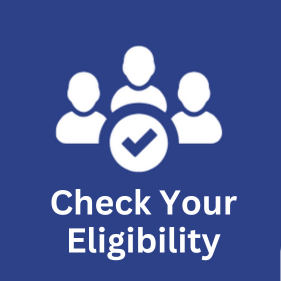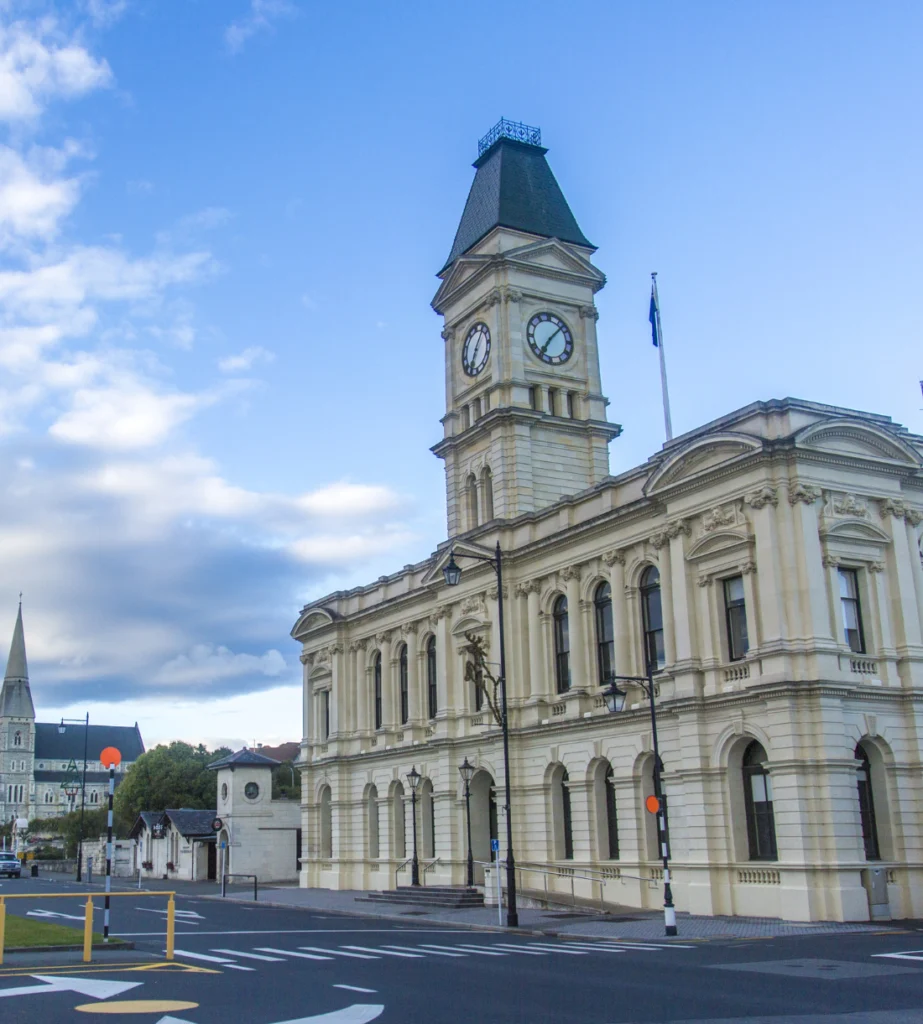
Yes, you can apply for UK student visa. The UK Government offers an opportunity to international students to study in UK but as a prerequisite, before flying you will have to get a student visa first.
There are various types of visas. The visa you need will depend on your age and the type of study you wish to pursue in the UK. Here’s an overview of the types of study visas and their application requirements as below:
- Tier 4 (General) student visa
- Short-term study visa
| Tier-4 (General) Student Visa | ||||||
| Student Visa Type | Work Permit | Who Can Apply? | Financial Evidences | When Can you Apply? | Ideal Arrival in the UK | |
| Tier 4 (General) Student visa | 20 Hours per week | Students aged 16 or over who have been offered a place in a course at a UK educational institution with a valid Tier 4 sponsor | Tuition Fees + Living Cost | Three months before the start of your course | Up to one week before if your course lasts six months or fewer. Up to one month before if your course lasts more than six months | |
- The applicant must have an unconditional offer of a place on a course with a licensed Tier 4 sponsor (Institute/College/University).
- You must be able to speak, read, write and understand English for convenient communication.
- Financial proofs i.e., exhibiting enough money to support yourself (living) and pay for your course (tuition fees).
- For a short term study visa, you must show the intention to leave the UK within 30 days of the end of your study (i.e., before the end of date of your immigration permission)
If you are applying for a student visa, usually you may need following documents-
- A current passport or other valid travel documentation
- Evidence of funds to provide your living expenses for the duration of your course
- Confirmation of Acceptance for Studies (CAS) reference number and documents used to obtain CAS
- Passport-sized colour photograph
- Tuberculosis screening (if required)
- Assessment documentation
- Academic Technology Approval Scheme (ATAS) clearance certificate (if required)
Yes, Additional documents may also be needed if you are –
- Not a citizen of the country you are applying from
- Under 18 years of age
- Have family (dependents)
*Please note that these are the basic requirements, every applicant has individual circumstances, please speak with our counsellor for a detailed list of documents required for visa processing as per your need.
If any of your supporting documents are not in English, you will need to have it translated. Each translated document must be dated and include the translator’s name and signature and confirmation that it is an accurate translation of the original document. It is also better to get notarised after translations.
- You’ll have to apply for your student visa application online using the British Government’s official UKwebsite.
- You can apply up to three months before your intended date of travel to the UK. Remember, your application date is the date when your application fee is paid.
- We are always here to help you. If you are our student with an offer letter from any of our partner institutions/Colleges/Universities, we can advise you on how to go about the entire process.
- We’ll make sure you are fully informed on the latest visa requirements and conditions; also help you prepare the right documents for your submission.
- Our team of experts will direct you to the official websites and to authorised immigration representatives to ensure you have the latest application forms and guidance. To reduce the hassle, we can also help to certify, translate and courier your documents.
Their visa fee changes as per their government policy. Moreover, Visa fee depends upon the visa that you will apply for:
| Student Visa type | Student Visa fee |
| General Student Visa (Tier 4) | It costs BDT 37,480 as the application fee for the visa from outside the UK. Also, you must pay BDT 37,480 per person for any dependants. |
| Short-term Study Visa | It costs: · BDT 10,447 for a 6-month visa · BDT 20,033 for an 11-month visa |
Source: https://visa-fees.homeoffice.gov.uk/y/bangladesh/bdt/study/all
*Please always check the official website for the latest fee, or check with our counsellor
- Online mode i.e., MasterCard or Visa card
- Through demand draft to be submitted at the visa application centre or the selected branches of Standard Chartered Bank
- Through Cash payment at the visa application centre or the selected branches of Standard Chartered Bank
- You may also speak to our counsellor for further information, Contact Now.
- To gain your UK student visa, you’ll have to provide evidence of proficiency in the English language. This usually means passing a secure English language test to be able to prove your communication and correspondence skills.
- IELTS for UKVI is an IELTS test approved for UK Visa and Immigration (UKVI) purposes. This applies to everyone coming from a non-English speaking country.
- While there is no change in the content, format or level of difficulty and scoring, IELTS for UKVI simply follows certain extra security protocols to ensure the authenticity of the test taker.
- You may also have to appear for a personal interview at the UK embassy or consulate or at the visa application centre.
- It depends upon the type of visa that you will apply for, as it will include the minimum requirement of the IELTS exam:
| Visa type | IELTS Requirement | Other Test / No OELTS |
| Tier 4 (General) student visa – below degree level and pre-sessional courses | IELTS for UKVI – 4.0 overall, and in each of the four skills | Some institution accepts followings instead of IELTS: · MOI, · Duolingo · No IELTS |
| Tier 4 (General) student visa – degree level and above | IELTS/IELTS for UKVI – 5.5 overall, and in each of the four skill | |
| NOTE: Speak to our Counsellor for further details and for latest information. | ||
- As part of your application, you must also obtain a biometric residence permit (BRP) from the UKVI. You will need to make an appointment with the UKVI to have your fingers and thumbs scanned and a digital photo taken of your face.
- You can always contact usfor a free counselling session, and we can guide you on how to go about the entire visa application process.
Although UK weather is unpredictable, it is rarely extreme. In summer, the average temperature ranges from 9–18 degrees Celsius (48–64 degrees Fahrenheit). On occasion, it can reach around 30 degrees Celsius (86 degrees Fahrenheit) in a heatwave.
In winter the average is between 2 and 7 degrees Celsius (36–45 degrees Fahrenheit), but temperatures often drop to just below 0 degrees Celsius (36 degrees Fahrenheit). Thankfully, most houses, buildings, trains and buses have good heating system
Spring (March, April and May) is a time for sudden rain showers, blossoming trees and flowering plants.
Summer (June, July and August) is the UK’s warmest season, with long sunny days, occasional thunderstorms and, in some years, heatwaves.
Autumn (September, October and November) can be mild and dry or wet and windy. It’s the season when the leaves change colour before falling from the trees and when the temperature dips.
Winter (December, January and February) is the UK’s coldest season, with freezing temperatures, icy conditions and sometimes snow.
USA (-10hrs) UK (-6hrs) Germany (-5hrs) Canada (-10hrs) Australia (+5hrs) Japan (+3hrs)
Each year, on the last Sunday in March, the clocks go forward by one hour (at 01.00/1am), and they go back again on the last Sunday in October (at 02.00/2am). The period when the clocks are 1 hour ahead (meaning there is more daylight in the evenings) is called British Summer Time (BST).
The UK unit of currency is pounds sterling (£GBP).
Yes, You can apply with MOI
Yes. Study gap is acceptable up to 7 years.
Your partner and children (‘dependants’) may be able to apply to come to the UK or stay longer in the UK.
You must be one of the following:
- a full-time student on a postgraduate level course (RQF level 7 or above) that lasts 9 months or longer
- a new government-sponsored student on a course that lasts longer than 6 months
- a Doctorate Extension Scheme student
Applications for a Dependant Visa can be made inside or outside the UK, and online. Our expert lawyers will assist you and make the process seamless.
Dependents granted Permanent Residence Visas have the right to live, study and work for as long as they remain permanent residents.
The number of hours you can work will depend on the job that you find, but the maximum is 20 hours per week.
Finding accommodation is one of the first things that pop up in our minds when we think of studying abroad. It can be quite confusing and overwhelming to find accommodation in a foreign country. But don’t worry, because our comprehensive guide on finding student accommodation abroad will make everything easy!
It is not difficult to get a student visa for the UK from Bangladesh, but you must follow all student visa requirements from Bangladesh and give yourself plenty of time to complete and submit your paperwork.
Ans. Once you get a PSW visa UK, you can work in the country for 2 years and after that try to procure the general work visa.
Ans. Engineering, computer networking, midwifery, education, and medical studies, as well as vocational certification programmes, qualify you for permanent residency in Australia. Electrical engineering, automotive, painting, hospitality, building, construction, etc. are some further trade courses.
Ans. To obtain your PR in Australia, you might use specific procedures. The simplest approach is to enrol in any course that makes you eligible for the desired outcome. In order to contribute to its national economy, Australia needs competent immigrants with strong educational backgrounds and work prospects. When you apply for a PR visa, one choice is the Australia-based Skilled Migration programme, which offers the most openings.
Ans. To obtain PR in Australia, you must have a specialised vocation. This applies to certain occupations like those of a doctor, engineer, dentist, social worker, mechanical engineer, chef, psychiatrist, etc.
Ans. Yes, you will have to submit a new application for the Graduate Immigration Route from UK. You must have a valid Tier 4 student visa to apply for the Graduate Immigration Route.
Ans. It is typically simpler to get a PR invitation for a profession that is in great demand and for which few people possess the necessary qualifications and expertise. The following criteria may be used to award points to skilled visa applicants: Age (between 18 years to 45 years) proficiency in the English language.
Ans. For PR in Australia, you must have a minimum of 65 points. Your odds of qualifying, however, increase with your total point.
There are opportunities to work in the country after graduation. Students can apply for the job-seekers visa
Post-graduation work permits are granted to international students upon graduation from a DLI and can be issued for up to three years
Spouse or unmarried partner to UK citizen: two years.
Lawful stay on any basis: ten years.
Unlawful stay: 14 years.
Tier 1 and Tier 2 work permit: five years.
Investor, sportsperson, business owner, arts: five years.
Ancestry: five years.
However, if you plan well in advance, you can apply for a range of scholarships offered by UK Universities and Colleges. Visit www.alexglobalconsultancy.com
If you have been wondering whether you can study in the UK without IELTS, the answer is yes! There are a number of universities and colleges that accept students without IELTS, so you don’t have to miss out on studying in the UK just because you don’t have IELTS.
There are a few reasons why you might not have IELTS. Maybe you didn’t have time to prepare for the test, or perhaps you didn’t get the score you needed. Whatever the reason, don’t worry – there are still plenty of options available to you.
The first step is to check the entry requirements of the universities and colleges you are interested in. Many institutions have their own English language requirements, so it is important to make sure you meet these. If you need help with your English, there are a number of free online resources that you can use to improve your language skills.
If you need help improving your English, you can rely on Career Paths. We have a dedicated team of professionals who will prepare you for the internal test conducted by universities.
Once you have checked the entry requirements, the next step is to find out which universities and colleges offer courses without IELTS. There are a number of these institutions, so you should have no problem finding one that is suitable for you. Career Paths is always here to help you out.
Many students worry about their study gap in order to apply for admission to UK universities. But the study gap is not a barrier at all to studying in the UK. Many UK Universities are used to receiving applications from students who have taken gap years, and they will take your gap year into account when making their decision
First, you need to choose the course and university. Then you can either apply through UCAS or directly to the University portal. You can check this article to get a comprehensive guide to getting admission to UK universities.
As an international student in the UK, you are eligible to work 20 hours per week. After completing your studies, you will get 2 – 3 years PSW (Post Study Work) Visa, which is also known as Graduate Route. Overall, the UK is a great place to study and work as well.
Yes, getting PR in the UK after studies is now easier than ever. With the updated rules, it can be possible to get PR mainly known as ILR (Indefinite Leave to Remain) within 5 years. To be more precise, you can apply for ILR after working and living in the UK for 5 years. You can apply for citizenship just after 1 year of getting ILR.
London is by far the most popular destination for international students studying in the UK. Other popular cities include Manchester, Birmingham, and Glasgow.
The cost of living in the UK can vary depending on which city you study in. You can expect to pay around £600-£1000 per month for rent and utilities, and food and other living expenses will add another £200-£300 to your monthly budget.
The UK has a temperate climate, meaning it’s not too hot or too cold year-round. In general, the winters are colder and the summers are warmer than in Bangladesh. However, the weather can be quite unpredictable and can change rapidly, so it’s always a good idea to carry an umbrella with you!
The education system in the UK is very different from Bangladesh. In general, classes are much smaller and more interactive. You’ll also be expected to do a lot of independent research and reading outside of class.
We hope this has helped to answer some of your questions about studying and living in the UK! If you have any other questions, or if you’re ready to start planning your studies here, we, ‘Career Paths’ in Bangladesh can help.
To study in the UK, you’ll need to apply for a Tier four (General) student visa. This type of visa is for students who are coming to the UK to study at an accredited university or college. Here are details of student visa requirements for the UK.
The processing time for a student visa for the UK can vary depending on your circumstances. However, you can generally expect it to take around three to four weeks from the time you submit your application until you receive a decision.
We hope this has helped to answer some of your questions about studying and living in the UK! If you have any other questions, or if you’re ready to start planning your studies here, we, ‘Career Paths’ in Bangladesh can help.
Yes, you are allowed to work while on a student visa in the UK. However, there are some restrictions on the type and amount of work you can do. For example, you are not allowed to work full-time or take up paid employment, you can do a part-time job covering 20 hours per week.. You may be able to work part-time or do an internship or placement as part of your course. Check with the Career Paths Agency for more information on working while you are in the UK as a student.
No, there are no restrictions on the type of courses you can study while in the UK on a student visa. However, you must be studying at an accredited university or college. You should also check with Career Paths to make sure the course you want to study is eligible for a student visa.
The cost of applying for a student visa for the UK varies depending on your circumstances. The current fee is £348. You can find out more about the cost of applying for a student visa on the Career Paths website.
The maximum amount of time students are allowed to stay in the UK on a student visa is five years. However, you must make sure you apply for an extension before your current visa expires. You can find more information about extending your student visa on the Career Paths website.
You can renew your student visa in the UK by following the same process as you did when you first applied for a student visa. You will need to fill out an application form and submit it to Career Paths, along with the required documents. The processing time for renewal is usually around three to four weeks.
Overseas students must pass one or multiple tests prior to being considered for admission by the majority of the Universities in the UK. These include standardised college and graduate admission tests like SAT, GMAT, and GRE. English language tests like IELTS and TOEFL are also included.
For the General Student Visa [Tier 4], the applicant will have to pay £348 when applying from outside the UK. An additional £348 per person will have to be paid for any dependents
Accommodation costs are around £6,000 per year.
We have some scholarships available for international students. Costs range from £1,000 to £3,000.
CAS is an electronic document issued to students who need to make a Tier 4 (General) application. Costs range from £500 to £6,000.
It costs £348.00
Alongside your studies, working a maximum of 20 hours per week, you can expect to earn around £6,000 per year.
Tuition fees for foundation are £15,000 a year. Undergraduate degrees are £14,000 per year. Masters degrees range from £14,000 to £18,000 per year.















